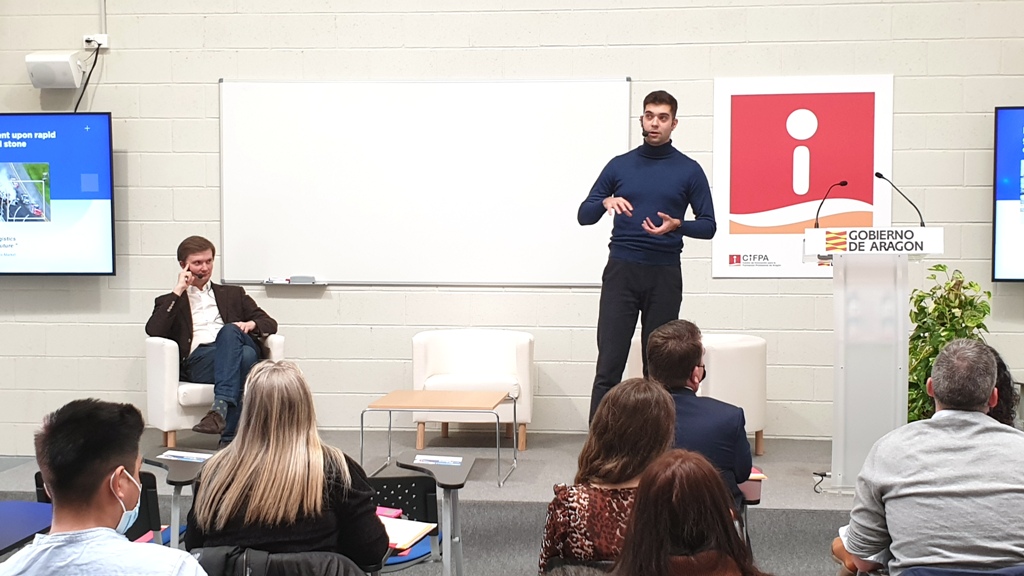
05 Dec Summary and video of the day on global gridlock
Technical conference: Innovation in Logistics and Transport. The importance of training in the face of global bottlenecks
16 November (10 a.m. to 1.30 p.m.)
The technical conference dedicated to innovation and training in logistics and transport, which focused, to a large extent, on the current situation of "global bottlenecks", showed the whole map of teaching possibilities in this area. Training actions aimed at vulnerable sectors, vocational training cycles, certificates of professionalism, continuous training for active workers and higher university studies were presented.
The day was opened by two professors from the Moscow State Automobile and Road Technical University (MADI), Alexander Zhukov and Vasiliy Demin, who showed how these studies related to logistics and transport are taught at their centre. Afterwards, Professor Emilio Larrodé, from the University of Zaragoza, among other training possibilities, explained the possibilities offered by the Master's Degree in Freight Transport Management, which, with a very practical nature and in an online format, can be accessed through professional experience and with a Higher Vocational Training qualification.
For her part, Susana Val, director of the Zaragoza Logistics Center (ZLC) specified the training activities offered at this centre dedicated to research and teaching in logistics and supply chain management. The ZLC is associated with the University of Zaragoza and MIT, Massachusetts Institute of Technology.
Luis Carlos Callao, advisor to the Directorate General for Innovation and Vocational Training, showed all the lines of regulated training that are developed within Vocational Training in relation to this sector. He also explained the possibility of accessing qualifications and training through certificates of professionalism.
At the round table dedicated to training in logistics and transport for vulnerable groups, the heads of the Sesé Foundation, Patricia Tisner, and the Adecco Foundation, Beatriz Gutiérrez, explained how they are working to provide job opportunities for all those who are in a situation of vulnerability. They stressed the need to work not only on technical issues but, above all, on transversal competencies related to personal skills.
In the speech "Training needs in the logistics and transport sector", Ángel Gil, manager of ALIA, Logistics Cluster of Aragon, indicated the jobs where candidates are needed. Ramón Tejedor, managing director of Aragón Exterior, spoke about "The Aragonese economy in the face of the global bottleneck" and left us, despite the current difficulties, with a good taste in our mouths by reminding us of the benefits that Aragon has due to its geographical location and its remarkable strengths such as talent, the research network and innovative training proposals.

No Comments